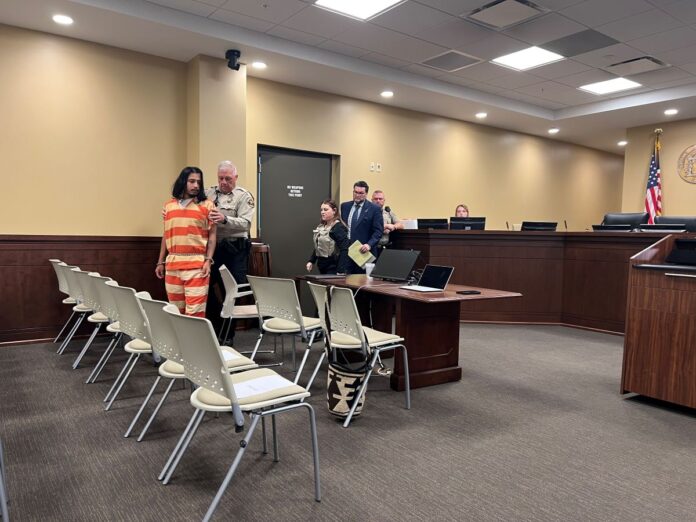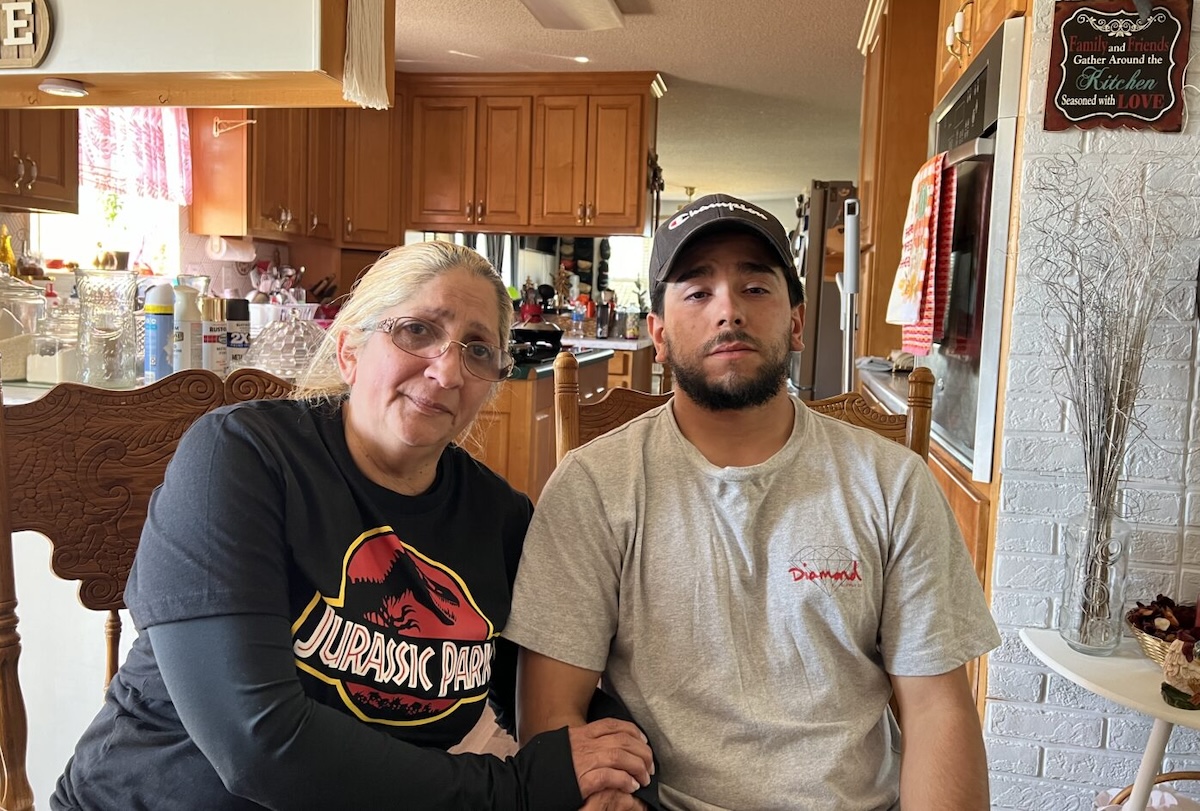
The defense attorney for Angel de Jesus Rivera-Sanchez, accused of murdering a Habersham County woman last October, is seeking to suppress statements the suspect allegedly made to police.
On October 28, 2024, GBI agents arrested Rivera-Sanchez, then 24, in Atlanta on charges of kidnapping related to the disappearance of 25-year-old Minelys Zoe Rodriguez-Ramirez. Rodriguez-Ramirez’s body was found the following day near the Cornelia Walmart, and she appeared to have been shot to death.
The latest move in the case is an apparent attempt to quash evidence reportedly found when a search warrant was executed involving Rivera-Sanchez’s possessions and possibly his home. Authorities have not confirmed a search warrant was in fact executed following Rivera-Sanchez’s arrest.

According to public records, Mountain Judicial Circuit public defender Jeanne C. Tiger submitted a lengthy series of motions on February 13 of this year, including a request for a Jackson v. Denno hearing, in which a trial judge—outside the jury’s hearing—determines whether a defendant’s confession was voluntary. If the judge finds the confession was not voluntary, he or she excludes it from being used against a defendant in court.
The public record does not indicate whether the Habersham County Superior Court, where the case is to be heard, has ruled on this motion. Jackson v. Denno was a U.S. Supreme Court case, decided in 1964, that is the basis of this kind of hearing.
“Those statements which incriminate defendant were made in the absence of counsel and without a knowing or intelligent waiver of counsel and were not voluntary,” Tiger wrote in her motion.
No party to the case has previously reported that Rivera-Sanchez confessed, and Tiger’s motion does not indicate what, if anything, he may have said to law enforcement authorities.
Local and national news reports, which have appeared in news media including The New York Post, Fox News, Newsweek magazine, CBS News, and a newspaper in the victim’s native Puerto Rico, have made no reference to an alleged confession.

Her mother told Now Habersham previously that Rodriguez-Ramirez said she was going out the night of October 22 to sell someone a photo. She texted her fiancé that evening, but that was the last communication reported. Her family reported her missing the following day.
After his arrest, Rivera-Sanchez was taken to the Habersham County Detention Center, where he was booked on a kidnapping charge, then subsequently charged with the murder. He was denied bond by the Habersham County Court, and has been held in the detention center ever since his arrest.
Rodriguez-Ramirez, a single mother known as “Mimi,” was a Tik Tok star, whose Spanish language videos, still online, about fashion, exercise, and other topics have garnered more than 50,000 followers. Her mother, Carmen, and friends raised money online for her funeral, and sought to arrange for the burial of her ashes in Puerto Rico.
In another motion in the February 13 document, Tiger requests that the court suppress all evidence against Rivera-Sanchez garnered by way of a search warrant some time after the alleged homicide.
“Defendant anticipates that the State…will attempt to introduce into evidence at trial evidence or property illegally seized from defendant,” Tiger writes. She argues that there was no probable cause for a search warrant; that it was conducted without required consent; that the reasons for the search were “stale” at the time; that the search exceeded its authorized scope, that excessive force was used in the search, and that it was conducted at an unreasonable time, among other objections.
There were no details in the record about the search, its date or location, or its findings in Tiger’s motion, but the motion refers to “premises,” which was presumably referring to the defendant’s home.
A further motion from Tiger asks that the District Attorney be obligated to reveal any agreements with witnesses or other parties to the case that might influence testimony, including promises of immunity; agreements to help witnesses or their families, favorable treatment with regard to criminal, civil, tax issues, probation, parole, or deferred prosecution; placement in a “witness protection program,” or “anything else which could arguably create an interest or bias, the witness in favor of the state or against the defense or act as an inducement to testify or to color testimony.”
Tiger’s motions also ask the judge to direct the District Attorney’s office to turn over all information pertaining to the case, including names of potential witnesses, information about the investigation garnered from all sources, and specifically for information that might point to the defendant’s innocence. This request for discovery is standard in all criminal cases.
On Thursday, May 22, in an email to Now Habersham’s inquiry about her motions, Tiger wrote, in full: “Motions to suppress are standard practice to limit the trial to the relevant facts and admissible evidence. My client is looking forward to having his day in court.”
Dustin Hamby, assistant special agent in charge at the Georgia Bureau of Investigation, said Wednesday he could not comment on the case, since it is still under adjudication. The district attorney and sheriff’s office have ignored or declined interview requests by phone and email, and a request to interview the defendant was denied by authorities at the detention center.
Now Habersham requested Rodriguez-Ramirez’s autopsy report this week from the Georgia Bureau of Investigation Medical Examiner’s office. In an email, Nelly Miles, director of the office of public and governmental affairs for the GBI, wrote, “…the autopsy report will not be available for release or viewing since the investigation is still open.”






